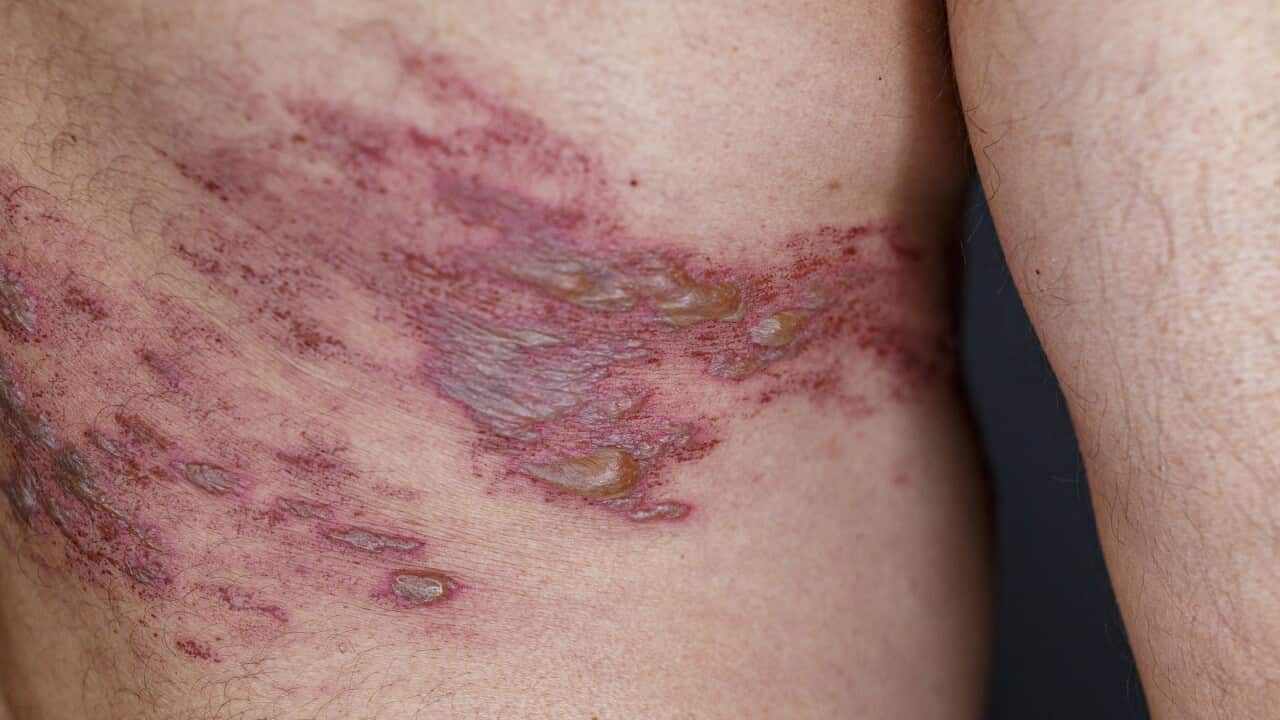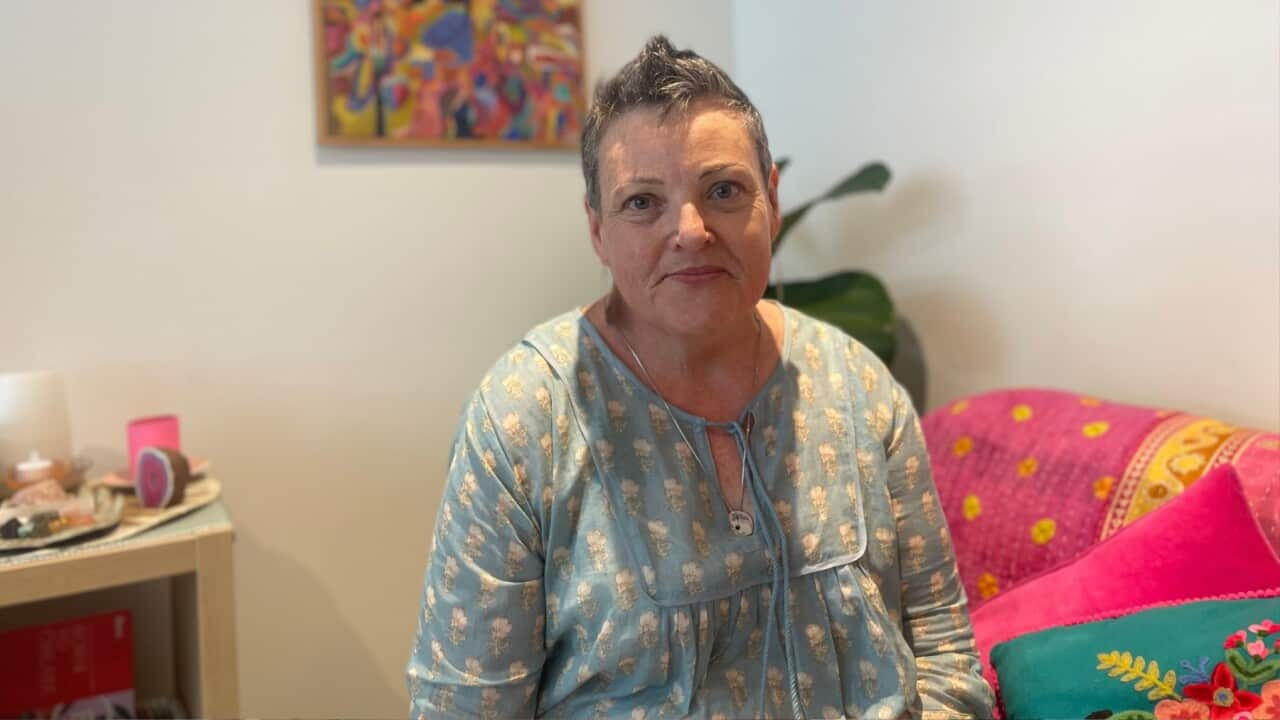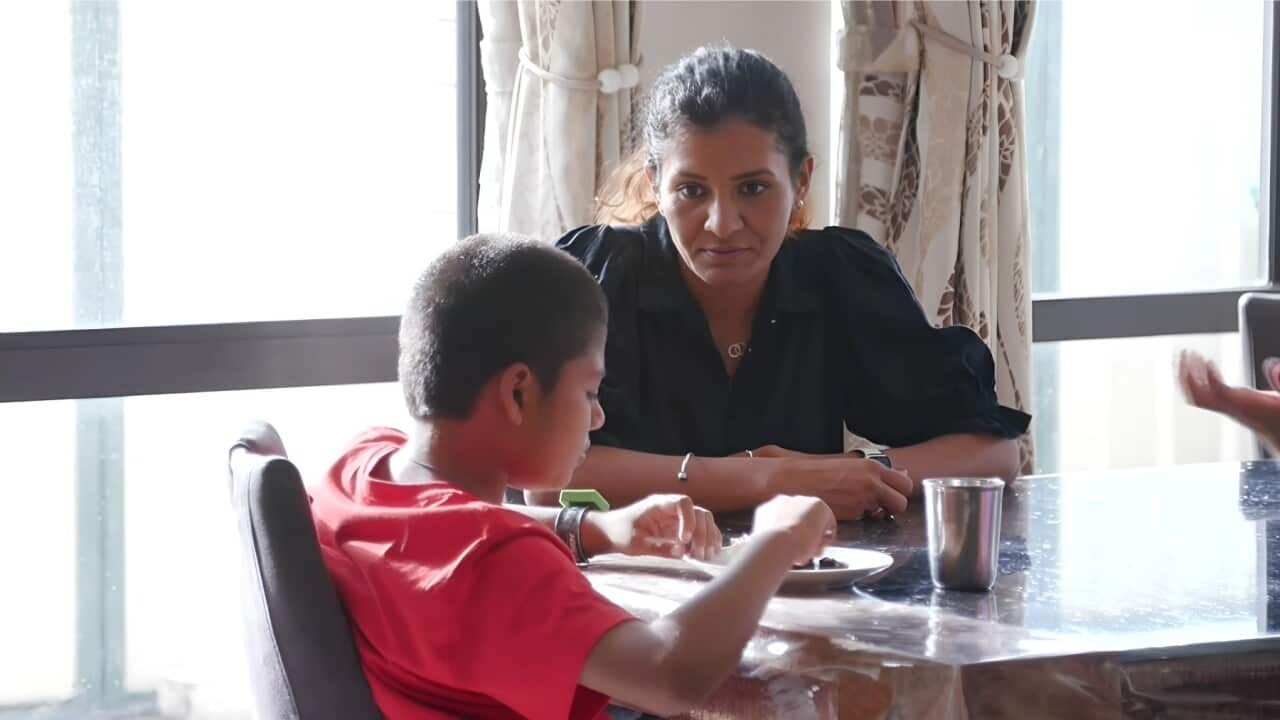TRANSCRIPT
If you're over 50, the chances are the virus that causes shingles is already lurking, hidden, in your nervous system.
Shingles is caused by the same virus that causes chickenpox: herpes [[her-pees]] zoster. Professor Robert Booy is an infectious diseases expert from the University of Sydney
"Shingles is a viral infection that especially affects the skin of the trunk or of the face. It actually happens because you've previously had chickenpox and then the virus hides for years in your nervous system. Virtually everyone has had chickenpox by the age of 50. Shingles affects one in three Australians during their lifetime. Shingles is a serious medical condition. It impacts on people because not only can it cause acute pain and local tenderness and swelling and blistering, but it can cause long-term pain as well."
The pain from shingles is significant - often described as the worst pain ever experienced. Wendy Dare was 64 when shingles impacted her life:
"The pain level to start with in the first few days wasn't significant, and I wouldn't have said that it was debilitating in any way, but that was at the beginning. In this upper area of my chest, it was a stabbing pain, burning pain. In fact, it was an everything pain. I saw the GP a number of times because sleeping was difficult, particularly if anything touched it. However, being able to wear things was a challenge. I had to be careful what I wore, and yes, it took quite a bit of management and it was quite uncomfortable for a long time."
A common misconception is that if someone leads a healthy lifestyle, they have a low risk of developing shingles.
That's not true. About one in three people will develop shingles during their lifetime.
Another misconception is that you can only get shingles once in your lifetime.
That's not true, either.
Professor Booy says as people get older, they become more at risk from post-herpetic neuralgia - pain that can last for years.
"Post-herpetic neuralgia is the pain that you get after shingles. It lasts for at least three months, and in some people for years, about 10 to 20% of people who've had shingles will go on to get post-herpetic neuralgia: a pain at the site of the shingles rash. Now that risk goes up the older you get. So if you're in your seventies or eighties and get shingles, you may have a risk of 20% of getting a pain that lasts for months and sometimes even years after the original rash."
Giulia Jones is the Chief Executive Officer of Painaustralia, an advocacy body working to improve the quality of life of people living with pain. She says shingles imposes a significant pain burden on the Australian community.
"So the problem with pain is it reduces people. It brings them home, it makes them afraid to move and to be active. And particularly I think shingles pain is well understood for doing that to people. It leaves them in their homes more, and we want to see any changes to the systems that support people's health, that will increase their capacity to engage, to be physically active, to be workforce active, and to keep their aspirations alive. So I don't want to see people retiring early. I don't want to see people's lives being minimised by conditions like this, and our community would welcome things that will improve that for them."
From November 1st, the Government's National Immunisation Program [[N.I.P.]] will list Shingrix to prevent shingles and post-herpetic neuralgia.
It's a non-live vaccine, which means it can't replicate inside the body and cause disease, even in people with weakened immune systems. The vaccine provides 10 years of protection and is more effective that the vaccine currently available on the National Immunisation Program.
The NIP will make Shingrix available to anyone over 65, to Aboriginal and Torres Strait Islander individuals over the age of 50 years, and to immunocompromised individuals aged 18 years and older with conditions at ‘high risk’ of shingles.
Giulia Jones welcomes the move.
"This is a really good start to getting people to continue with their working lives, keep their families together and active and satisfied and growing the next generation as well into great workers. So disease does happen to people, but we can do a progressively better job in this country of avoiding and treating that which we see."
Experts are encouraging families to begin conversations with their loved ones to raise awareness about how painful and debilitating shingles can be.













